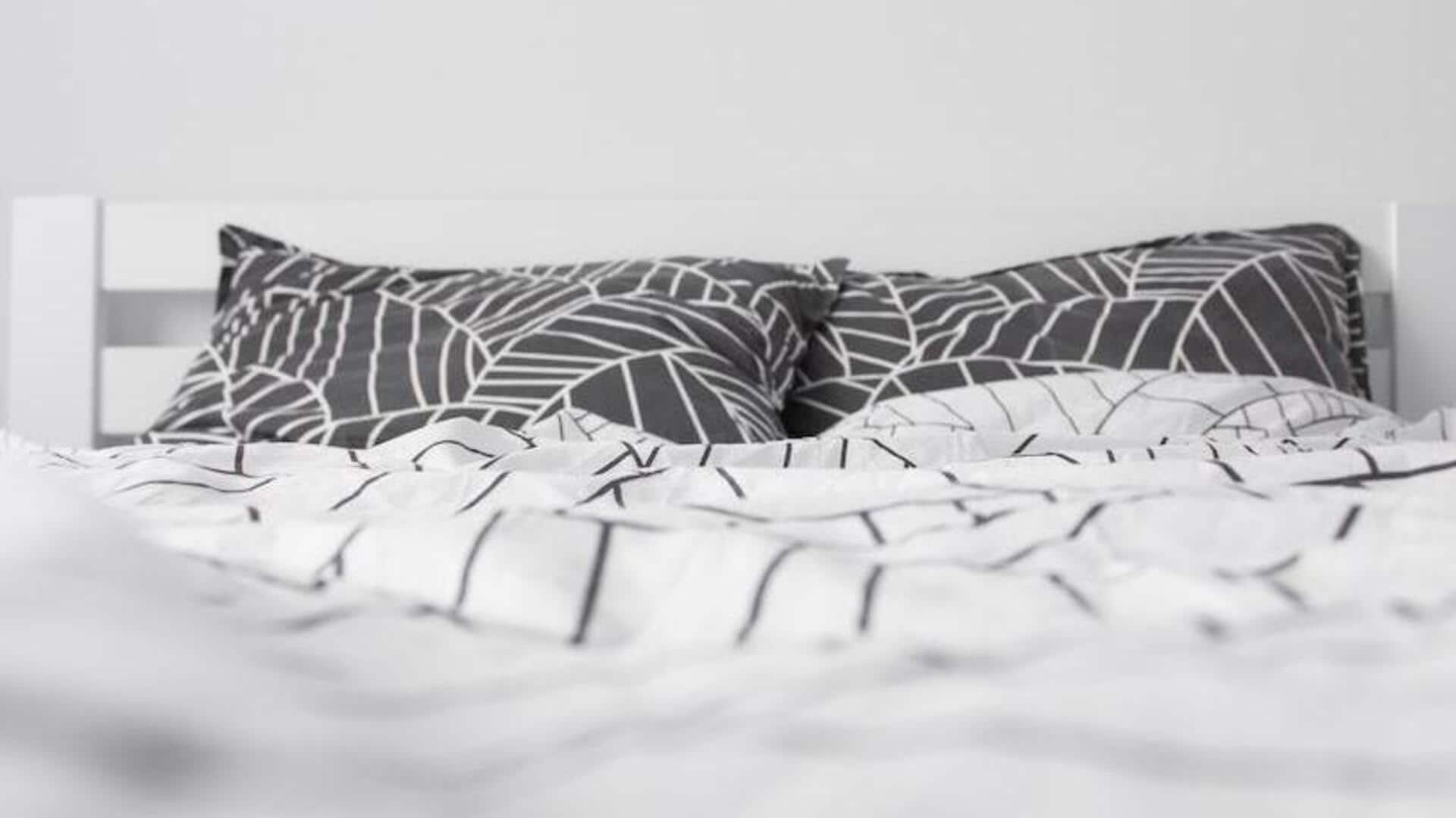
Not changing bedsheets regularly? Be mindful of these infections
What's the story
Sometimes a simple daily task such as changing or dusting off your bedsheets can significantly impact your health Even when bedsheets may not appear visibly dirty, they can accumulate dead skin cells, dust, sweat, etc. potentially leading to various skin and health issues. According to medical experts, it is recommended to change the sheets once a week, or every two weeks at the most.
Impact 1
Fungal and bacterial infections
Sleeping on filthy bedding exposes the skin to additional risks such as bacterial and fungal illnesses. Your family and visitors could develop a variety of bacterial and fungal ailments from pneumonia, and folliculitis to ringworms, onychomycosis (skin sores, disintegrating toenails), and athlete's foot, just from sleeping on dirty bedding. These infections can cause scarring, bumps, excruciating irritation, and even rashes.
Impact 2
Acne breakouts
The appearance of acne is one of the most common impacts seen on the skin. The hidden dangers within the fibers primarily impact your skin. For people who are prone to acne, dirty bedsheets can harbor bacteria and sebum, which may aggravate acne breakouts. Overnight exposure to these toxins can cause the skin to become more inflamed and exacerbate pre-existing acne the next day.
Impact 3
Allergies and breathing problems
According to studies, dust mites are the main reason why people develop respiratory allergies. Additionally, bacteria aggravate pre-existing sensitivities. Patients with asthma in particular need to exercise caution because, if your bed linens are not frequently cleaned, your symptoms may worsen with time. Since dust mites thrive in humid environments like beds, along with dust particles they can reside in bedding, mattresses, and pillowcases.
Impact 4
Stress and paranoia
Unclean bedspreads, pillow covers, and quilts can affect you not just physically but also mentally. Bedbug infestations in particular can make sleeping uncomfortable and lead to increased tension, irritation, and even anxiety. These problems can also result in frequent emotional outbursts, burnout, and inattentiveness at work or school. Whereas, sleeping on a fresh bedsheet can lead to a healthy and peaceful mind.
Impact 5
Sleeping disorders
One reason for your lack of sleep can be unclean bed sheets or covers. Consistent sleep disruption caused by bedbugs or overall unease might mess with the body's sleep cycle. A person's mind and body can suffer long-term consequences of irregular sleep, which increases stress. Many studies have backed the connection between the presence of mold, germs, bedbugs, and sleeping disorders.